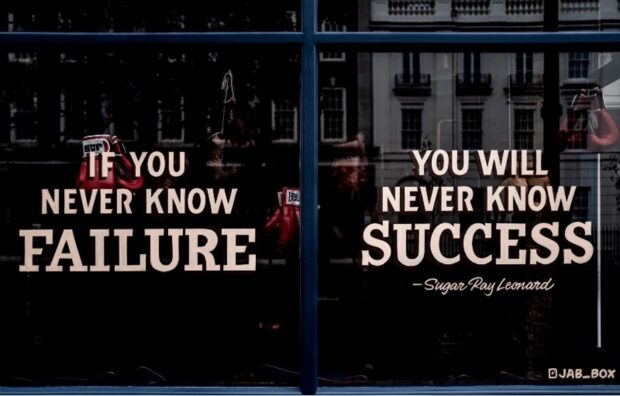Editor’s note: This is the first of three articles Idaho Education News published from a West Ada educator and coach offering insights gained from decades he spent working with student athletes.
This article, and this series of articles, comes from a collaboration between Nathan White and Jason Warr. Both of us are lifetime educators and coaches in the West Ada School District, where Jason has worked for 26 years and where I have worked for 24 years. We are both heading towards the end of our careers after holding multiple jobs at multiple schools and buildings in the district. We are both parents of former and current student-athletes in multiple athletic programs. We are both passionate about high school athletics and the lessons gained from playing high school sports.

Since we have spent most of our adult lives in high school athletics, we have seen the ugly side of high school athletics. This ugly side, more often than not, comes from different definitions of success.
Success is defined as a favorable or desired outcome. Just in that definition, there is a lot of ambiguity about what success looks like. Once you add in parents, players, coaches, and competition, that definition gets even more ambiguous.
One of the problems in high school athletics is how success is defined. When one looks at coaches, parents, and players in a high school sport, each of those definitions of success can look different. Which lens do we view athletic success? Is success winning? How many games do you have to win? Is it winning a district championship? Is it winning a state championship? Is it being the starting point guard on a basketball team? Would you rather lose and play all the time? Would you rather your child not play as much but the team to win more?
These are hard questions that have different answers in theory and in practice.
One way to objectively look at success is to look at some stories from around the West Ada School District that attempt to define the different lenses that can be used to see athletic success.
The coach’s lenses of success
I have been a high school coach for 24 years at five different schools. I was part of two state championships. Jason Warr coached for 15 years at four different schools and was part of two state championships. If Jason and I viewed state championship trophies as our lens of success, we are not very successful.
For most of my career, I coached for Paul Peterson at Eagle High. Coach Peterson can sum up his lens of “success” in one word — Disneyland. Disneyland has nothing to do with wins and losses. Disneyland refers to when his players are fathers and husbands in 20 years. Disneyland is a code word: will his players take their families on vacations and be upstanding, forthright members of society? Will his players sacrifice for their families and take their kids to Disneyland?
Coach Peterson was a football coach for 26 years and a head coach for 18 years. Paul Peterson won one state championship. If we judged him by his state championship totals, he only succeeded once. However, when Coach Pete retired, the outpouring of support from around the community and Treasure Valley was huge. Paul Peterson is a successful high school football coach who believed in doing the little things right and teaching his players about Disneyland. Disneyland was one of the lenses that Coach Peterson used to look at high school athletic success.
Another West Ada football coach who recently resigned also believed in a lens of success that was more than winning. Judd Benedick was a long-time nemesis of mine and Eagle football. As a coach for 26 years — the last 16 years as the head coach at Mountain View — Coach Benedick’s teams were always well-coached, played hard, and Eagle versus Mountain View was always an awesome high school football game — including last year, in a game that came down to the last 14 seconds and did not work out in my favor.
Coach Benedick’s belief in the “Afterglow,” a byproduct from his time at Pacific Lutheran University playing for legendary coach Frosty Westering, was well-known in the Treasure Valley football circles. Much like Coach Pete’s Disneyland, Judd’s beliefs about high school football come from a deeper place than winning and losing. It is about the relationships with one’s teammates and the love and care that comes from going to battle with one’s brothers.
Judd Benedick won one state championship at Mountain View. If his 26-year career was judged solely on winning state titles, he failed a lot more than he succeeded; however, when he resigned this year the media parade and public outpouring of support for him showed how well-respected and successful he was. The Treasure Valley will miss Coach Benedick as a head coach for many reasons, not just for his wins and losses. One of Judd Benedict’s lenses for high school athletic success is the relationships and connections between his players.
Dennis Kerfoot won his only state basketball championship at Meridian in 1992. I knew Dennis as the head basketball coach at Eagle High later in his career. Kerfoot was a head basketball coach for 19 years and won one state title. Again, most consider Dennis Kerfoot to be an extremely successful teacher, vice-principal, and coach.
I loved watching Kerfoot’s hard-nosed, defensive approach to basketball. He believed in being tougher than the other basketball teams and it showed. When he allowed me to watch his practices (which was a rare treat because he believed in clearing the gym so he could work), I saw a passionate coach who loved his players and pushed them to incredible efforts and heights. To judge him on state titles or wins and losses would be to miss the point. One of the lenses Coach Kerfoot used to signify success was the work ethic he instilled in his basketball teams.
I picked these coaches to use as examples with intention. All of them I know, all of them are done coaching, and all of them won one state title.
There are far more examples of awesome coaches and human beings who will never win a state championship but who will pour their hearts and souls into coaching and preparing athletes for what lies ahead of them. There are countless examples of coaches right now, at your high school, working hard to create their culture and their lens of success. Every one of them wants to win; but more, every one of them wants to teach their players the lessons that come from high school athletics that transcend winning.
In giving these examples about West Ada Coaches, I am attempting to show that winning is not normal nor is it easy. If coaches only judge themselves — or are only judged by others — by their wins and losses, people are missing the point of high school athletics.
However, we all want to win. In addition to these previous lenses, one of the lenses coaches do view as success is winning and losing. Yes, we all want to win. If you polled me, or Coach Peterson, or Coach Warr, or any high school coach, we would all vote YES! for more state titles. We would all like to win every game, all the time. However, that is just one lens.
But using only that lens isn’t realistic. If you forget the freaks of nature that Bill Belichick and Nick Saban are, nobody wins all the time. Especially in high school. High school athletics must be about more than just wins and losses.
If wins and losses are the only barometer, people will sacrifice their morals to get to that goal. Bobby Knight, a former college basketball coach, writes about being willing to lose a game to save a season, or to lose a season to save a program. Most coaches put other attributes higher than winning and losing.
John Wooden was famously asked how his basketball team at UCLA was going to be one upcoming season. The interview question was about how many games he thought the Bruins would win and lose. Wooden responded “Ask me in 20 years and we’ll see how successful these boys are. Then I’ll be able to tell you if I succeeded as a coach.”
John Wooden understood that success has many lenses and that winning, losing, and championships were only one slice of the pie. Paul Peterson got it. Judd Benedict got it. Dennis Kerfoot got it.
Our society needs to get it and understand that high school athletics are about more than state championships and winning. The lessons we want our high school athletes to learn are much deeper and harder to measure.
Thanks for reading. In the next article, we are going to continue to explore the different lenses of success in high school athletics.
Coach White’s series, at a glance:
Wednesday
- What is “success” in sports?
Thursday
Friday
